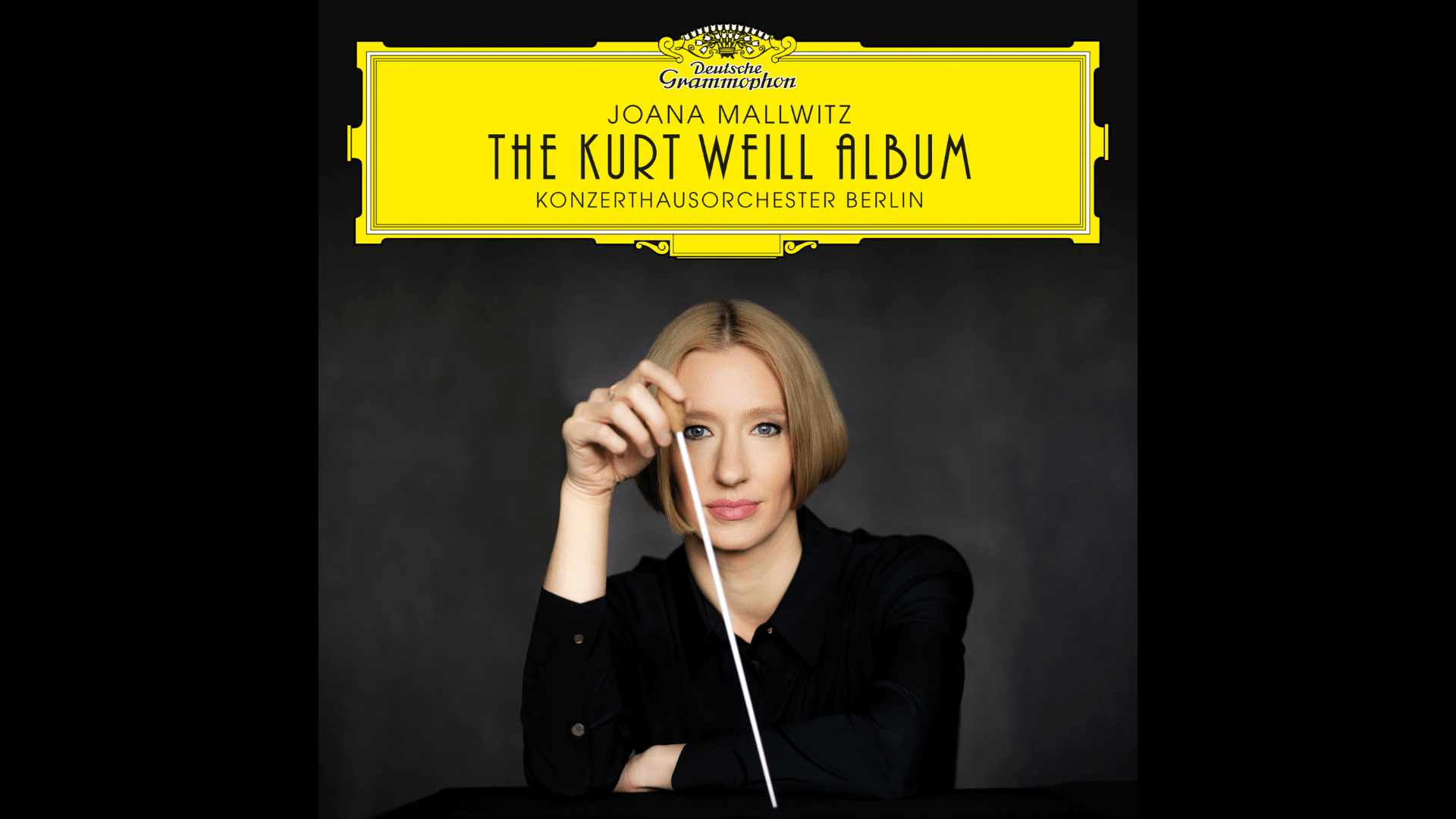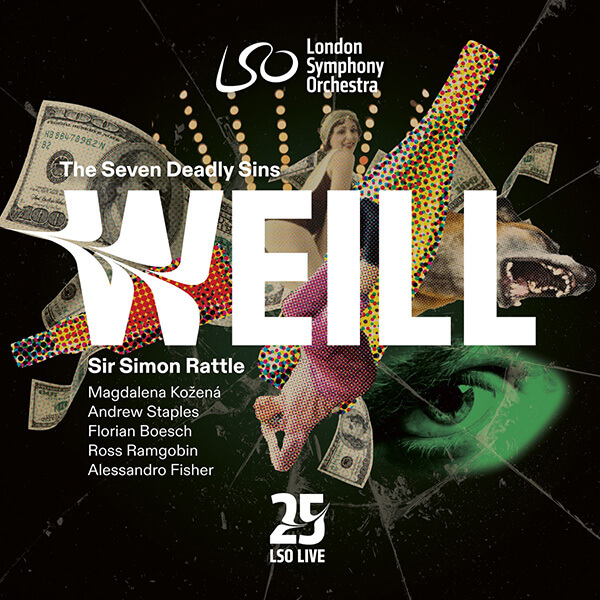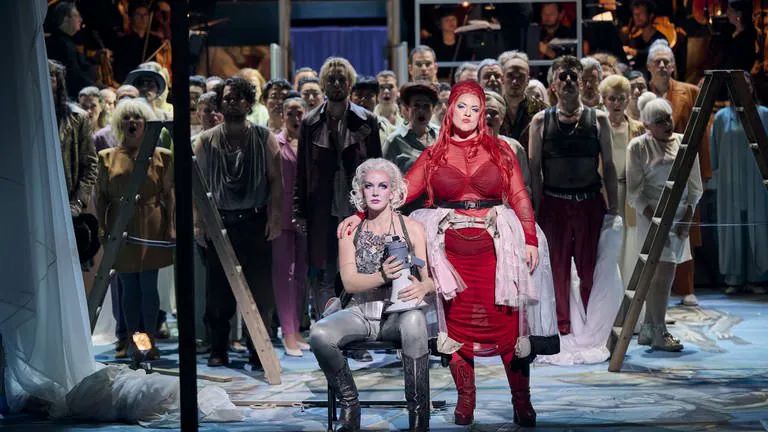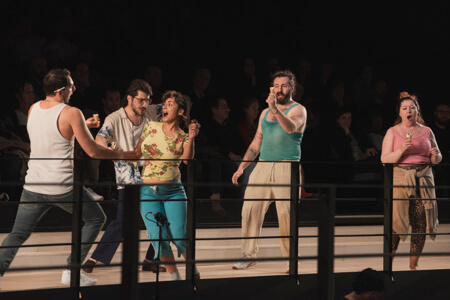
Deutsche Grammophon Releases All-Weill Recording:
Joana Mallwitz Conducting Weill’s
Two Symphonies and Die sieben Todsünden
|
Joana Mallwitz’s acclaimed inaugural season as Music Director of the Berlin Konzerthausorchester began with a fine performance of Weill’s first symphony, Symphonie in einem Satz. Now her tenure as a Deutsche Grammophon recording artist begins with an all-Weill release that brings together both of Weill’s symphonies with the always popular sung ballet Die sieben Todsünden, with Katharine Mehrling in the lead role. The release has occasioned a flurry of coverage built around conversations with Mallwitz, which prove her so eloquent on the subject of Weill and his music that there’s little need to do more than quote her. Here is an assemblage from interviews published by Gramophone magazine and bachtrack.com: “I believe, in his first symphony, Weill was interested in this pure idea of humanity, of a people finding peace. It has a very immediate direction into the heart of the listener. And listening to it you can feel that it’s so honest. It’s so raw. There’s no showiness in it. He really cared about this message, and this makes it incredibly strong.” “It’s funny: people don’t know what they’re missing if they’ve not heard Weill’s symphonies. I always used to make a joke about Weill’s Second Symphony: Everyone loves it. Audiences love it. Orchestras love to play it – but nobody knows it! Bruno Walter, who premiered the second symphony, fell in love with it. He really believed in it. He took it everywhere. He premiered it in Amsterdam with the Concertgebouw Orchestra. He took it to New York, to the New York Philharmonic, and later he took it to Vienna. Weill really had a fighter in this famous conductor.” “The most important thing, I think, to Weill was to write music for people, to bring music to people. It was the message of the music to tell people something, to make people care about it–maybe that’s why later in life he wrote more and more works for stage and for more popular genres, without losing the depth and complexity of absolute symphonic music. His later Broadway works sound like an extract of his early symphonies.” |
A New Production of Street Scene in the US: |
|
The Maurrants: L to R, Anna (Katherine Pracht), Frank (Kevin Burdette), and Rose (Christie Conover). |
“Anyone who loves Broadway theater, drama, bluesy musical numbers and zippy dance routines needs to head up to the mountains,” writes Peter Alexander in Onstage Colorado. In the first professional American production of the work since the pandemic, Central City Opera’s Street Scene has been greeted enthusiastically by commentators such as freelance music writer Kelly Dean Hansen, who states simply that “the quality of Weill’s ‘Broadway opera’ in this production is on par with the best things that have ever been seen on the Central City stage.” Director Daniel Pelzig brings to the work a realistic conception “with no revisionist points to make,” hewing closely to the spirit of the 1947 original. Conductor Adam Turner, already a Street Scene veteran from the 2018 Virginia Opera production, led the Central City orchestra in “a stylish performance, getting the Broadway idioms right and supporting the singers well.” The artists portraying the four principal characters earn plaudits of their own: Katherine Pracht as Anna Maurrant (“heartrending pathos”), Kevin Burdette as Frank Maurrant (“a terrifying portrait of unenlightened masculinity”), Christie Conover as Rose Maurrant (“the moral focus of the drama”), and Christian Sanders as Sam Kaplan (“breathtaking”). Alexander concludes his assessment with the words: “In short, this production of Street Scene is a rare opportunity to see an important work of American musical theater done well.” (Full productions of Street Scene have been issued twice on home video, in both cases available online: Theater im Pfalzbau [1995, a co-production with Houston Grand Opera and Theater des Westens, Berlin ] and Teatro Real, Madrid [2018].) |
Harry Connick, Jr. Features Weill Songs |
|
Harry Connick, Jr., in a 2018 photo. Credit: Hilary Scott |
Grammy and Emmy winner Harry Connick, Jr., perhaps known best for his appearances on film and television, takes the concert stage regularly. He lit up the Hollywood Bowl for three concerts last month, along with his own band and the Los Angeles Philharmonic conducted by Thomas Wilkins, culminating in a Fourth of July Fireworks Spectacular. (Wilkins appropriately dubbed the concerts “American Treasures.”) The first half of each concert consisted of several well-known short works and songs by American composers with Wilkins and the Philharmonic. Connick headlined the entire second half with a suite of standards that included not one but two Weill numbers, “September Song” and “Lost in the Stars.” Fireworks were scheduled for the end of the show, but Connick provided his own, captivating the audience with his vocal and pianistic virtuosity and making sure that the crowd got a good dose of Weill along the way. |
|
|
|
|
|





